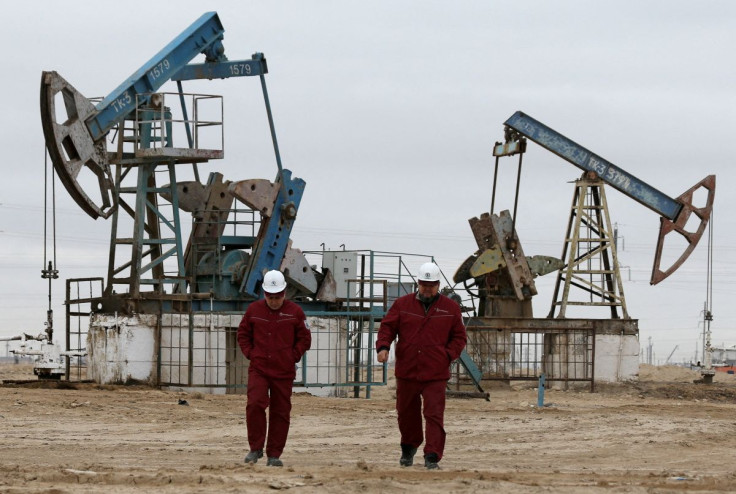Oil Prices Recoup Losses On Renewed Supply Worries, Dollar Weakness

Oil prices rebounded from earlier losses on Thursday as Chinese officials planned to ease restrictions in Shanghai, which could further tighten global energy supply, and as the dollar retreated from recent gains.
Brent crude futures for July rose 92 cents, or 0.8%, to $110.03 by 11:33 a.m. EDT (1533 GMT), after hitting a session low of $105.75. U.S. West Texas Intermediate (WTI) crude futures for June rose 32 cents to $109.91, after dropping to $105.13 earlier.
In China, investors are closely watching plans to ease coronavirus curbs from June 1 in the most populous city of Shanghai, which could lead to a rebound in oil demand from the world's top crude importer.
Oil markets also rebounded as the dollar weakened on Thursday. The broad dollar index was down 1% on the day after recent gains. Oil benchmarks often move inversely with the dollar as most global crude transactions are handled in dollars, so a rising greenback makes crude more expensive for big importers.
"The dollar is putting a lot of pressure on commodities," said Tim Snyder, economist at Matador Economics in Dallas.
Heavy falls on European and Asian stock markets followed Wall Street's worst day since mid-2020, as stark warnings from some of the world's biggest retailers underscored just how hard inflation is biting.
The looming possibility of a European Union ban on Russian oil imports has been supporting prices, however.
This month the EU proposed a new package of sanctions against Russia over its invasion of Ukraine, which Moscow calls a "special military operation".
That would include a total ban on oil imports in six months' time, but the measures have not yet been adopted, with Hungary among the most vocal critics of the plan.
Russian Deputy Prime Minister Alexander Novak said on Thursday that Moscow would send any oil rejected by European countries to Asia and other regions.
Novak said Russian oil production was about 1 million barrels per day (bpd) lower in April, but had increased by 200,000 bpd to 300,000 bpd in May with more volumes expected to be restored next month.
On Wednesday, the European Commission unveiled a 210 billion-euro ($220-billion) plan for Europe to end its reliance on Russian fossil fuels by 2027, and to use the pivot away from Moscow to quicken its transition to green energy.
© Copyright Thomson Reuters 2024. All rights reserved.




















